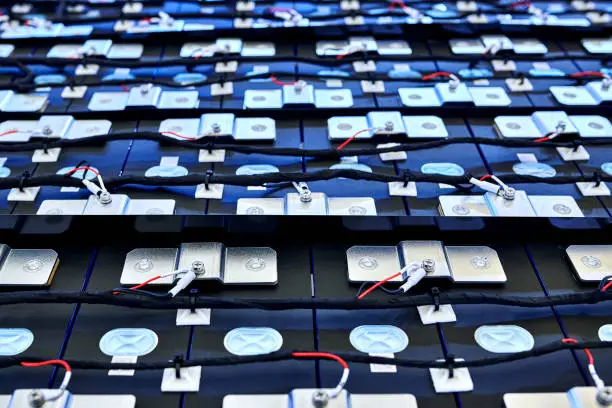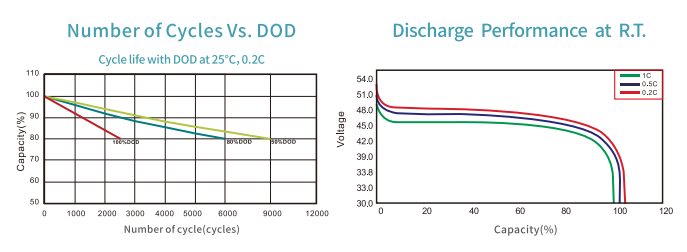One of the most critical factors in battery technology is energy density. Energy density measures how much energy a battery can store in relation to its size or weight, and it plays a key role in determining the battery’s overall performance and suitability for different applications.
At MK ENERGY, we understand that selecting the right battery for a specific application involves more than just considering its capacity. Energy density is a vital characteristic that influences not only the battery’s effectiveness but also its practicality in different scenarios. In this article, we’ll explore what energy density is, why it’s important, and how it factors into battery selection.
What is Energy Density?
Energy density refers to the amount of energy a battery can store relative to its size (volumetric energy density) or weight (gravimetric energy density). It’s expressed in two common metrics: Gravimetric Energy Density (Wh/kg): The amount of energy stored per unit of mass; Volumetric Energy Density (Wh/L): The amount of energy stored per unit of volume.
A battery with high energy density can store more energy in a smaller and lighter package, which is advantageous in many modern applications. The higher the energy density, the longer a device can operate without needing to recharge.
Why Energy Density Matters
Energy density is one of the most important metrics in determining the overall performance and suitability of a battery for different applications. It affects various aspects, such as:
Battery Size and Weight
In applications where space or weight is at a premium, such as smartphones, drones, or electric vehicles, energy density plays a crucial role. Higher energy density means that manufacturers can use smaller or lighter batteries without sacrificing capacity, leading to more compact and portable designs.
Runtime and Efficiency
Batteries with higher energy density provide longer runtimes, which is critical for both consumer electronics and industrial applications. In renewable energy storage systems, a higher energy density battery can store more power in a smaller footprint, increasing overall system efficiency.
Cost and Performance Trade-offs
While batteries with higher energy densities can offer significant advantages, they often come at a higher cost. For instance, baterías de iones de litio have a higher energy density compared to traditional lead-acid batteries, but they are generally more expensive. Understanding the energy density requirements for a particular application helps businesses and consumers make informed trade-offs between cost, performance, and battery lifespan.
Comparing Battery Chemistries and Energy Densities
Different types of batteries vary in terms of energy density, and this can influence their suitability for various applications. Here’s a comparison of some common battery chemistries:
- Lead-Acid Batteries: These are one of the most widely used battery types for large-scale energy storage and backup power. While they are highly reliable and cost-effective, lead-acid batteries have a relatively low energy density, typically ranging from 30–50 Wh/kg. As a result, they are best suited for stationary applications, such as in backup power systems or grid energy storage.
- Lithium-Ion Batteries: Lithium-ion batteries are known for their high energy density, which can range from 150–250 Wh/kg. This makes them the preferred choice for applications that require lightweight and compact energy storage solutions, such as portable electronics, and drones. Their higher energy density allows for longer runtimes and better performance in weight-sensitive environments.
- Nickel-Metal Hydride (NiMH) Batteries: While these batteries offer better energy density than lead-acid batteries (around 60–120 Wh/kg), they still fall short of lithium-ion technology. NiMH batteries are used in applications where safety, reliability, and cost are more important than maximizing energy density.
Applications and Energy Density Requirements
Different applications have varying requirements when it comes to energy density. For grid-scale energy storage, volumetric energy density may be more important than gravimetric density. Systems like solar and wind energy storage require large amounts of energy to be stored in a confined space. High energy density batteries allow for more efficient storage, reducing the need for expansive installations.
Energy density is a critical factor in battery selection, influencing everything from the size and weight of a device to its cost and performance. At MK, we are dedicated to providing a range of battery solutions, including lead-acid and lithium batteries, to meet the specific energy density requirements of diverse industries and applications. As technology continues to evolve, energy density will remain a key driver in the development of more efficient, powerful, and compact energy storage solutions. By understanding the importance of energy density, businesses and consumers can make more informed decisions when choosing the right battery for their needs.



